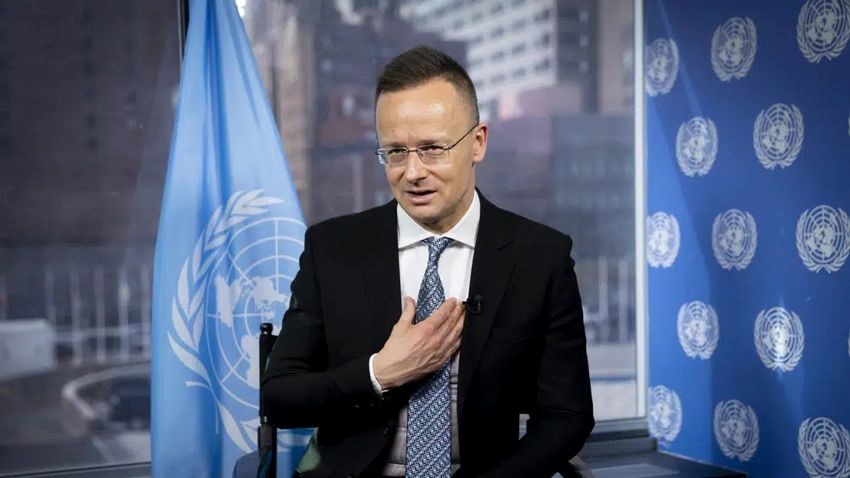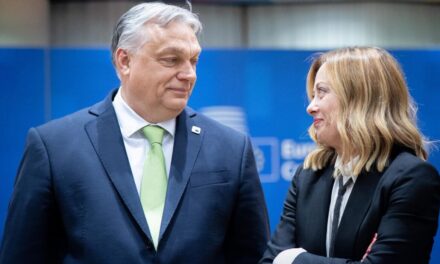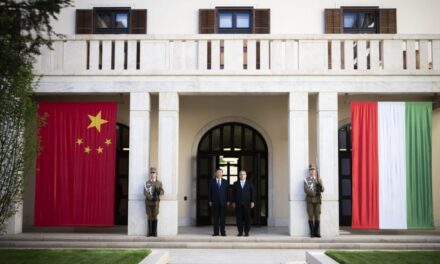The accession of a country at war cannot be on the agenda at the NATO summit in Vilnius, the North Atlantic Treaty Organization cannot become part of the conflict in Ukraine, because that would entail the risk of the third world war, stated Minister of Foreign Affairs and Trade Péter Szijjártó on Thursday in Oslo.
According to the press release of the Ministry of Foreign Affairs and Trade, the head of the ministry reported after the NATO informal meeting of foreign ministers that, as a neighboring state, the negative effects of the war are strongly felt in our country, therefore the government wants peace as soon as possible, but this position is still in the minority in the transatlantic region.
He reminded that the military organization stated last year that it is not a party to the conflict in Ukraine and is doing everything to avoid a direct confrontation with Russia.
"For us, sticking to this decision is vitally important, (...) this must continue to be the basis. This should determine everything that shapes NATO's activities related to Ukraine, including the preparation for the summit"
he thought.
"Fortunately, there was no indication today at the Foreign Ministers' Council meeting that would have cast doubt on the validity of our previous decision," he pointed out, also referring to the fact that this decision must be confirmed at the summit in Vilnius in July and that it must be avoided escalation risk increase.
Regarding possible Ukrainian NATO membership, Péter Szijjártó stated:
"We have to speak clearly, the accession of a country at war cannot be on the agenda. I think that there is agreement on this in a closed circle, (...) but it is clear that some countries do not dare or do not want to express themselves so firmly and directly in public"
"One could argue, one could promise the Ukrainians that they will receive a membership schedule at the summit. But that wouldn't be fair to the Ukrainians, you shouldn't create illusions that obviously won't come true"
he added.
He also spoke out against the Ukrainian armed forces receiving any combat training under the NATO flag, as this could result in a widening of the conflict.
According to him, bilateral combat training and the training of military medical professionals are fine, but joint training by the alliance would already contradict previous decisions.
The minister announced that the 500 million euro annual development fund proposed by the NATO Secretary General to strengthen Ukraine's defense capabilities can only be created on a voluntary basis. In addition, he called it important that the NATO-Ukraine Council should stand up in such a way that the respect of the rights of national minorities can also be held accountable.
He underlined: there is a lot of pressure for Hungary to finally ratify Sweden's NATO accession, but the government's position is clear that the date of this will be decided by the Parliament.
"We are not willing to accept any pressure. The Hungarian parliament will make a decision on ratification in a sovereign way, which the government naturally supports"
he said.
He also informed that several of his colleagues expressed their appreciation for the good behavior of the Hungarian peacekeepers serving in the Kosovo operation, which, according to him, our country can be proud of.
Péter Szijjártó emphasized that, in addition to the threats from the East, NATO must also pay attention to the challenges coming from the South, for example, the increase in the threat of terrorism in the Middle East and Africa, which could lead to new waves of mass migration towards Europe.
"Therefore, we consider it very important to help develop the defense capacities of the African and Western Balkan countries, as well as the Caucasus," he emphasized. He then announced that the money paid to finance the Afghan army will not be returned to the NATO member states despite the withdrawal, and the Hungarian government will therefore give 320 million forints to Bosnia-Herzegovina, 120 million forints to Georgia and Moldova, and 40 million forints to Jordan. Redirected to developing the defense capabilities of Mauritania and Tunisia.
Finally, he pointed out that Hungary continues to oppose arms shipments to Ukraine, and several African countries are also worried that these devices will suddenly appear in the already unstable regions of the continent.
MTI
Featured Image: Photo: AP/John Minchillo













